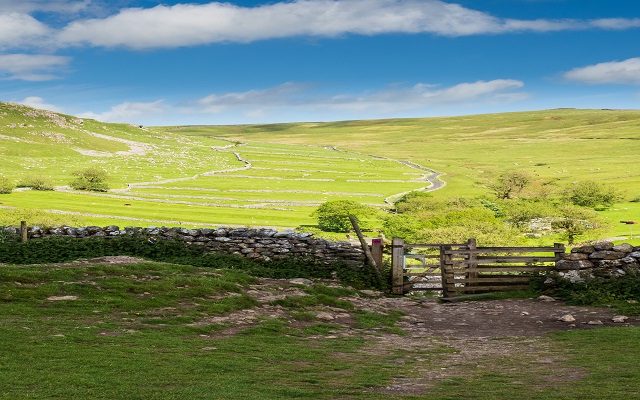Land Business Update | Week Commencing 2nd November 2020
Welcome to our update on key land management, farming, planning and energy issues.
Government makes concession on imported food standards but still does not guarantee them
The government has proposed to amend the Agricultural Bill so that the Trade and Agriculture Commission will be put on a statutory footing and its lifespan extended to three years from the current six months. The farming lobby has been pressing for this type of change. The Commission will be asked to produce an expert and independent report on each proposed free trade agreement, which will be available to parliament for the 21-day scrutiny process before the deal is finalised. However, this is not a veto or commitment in an Act that standards will not be lowered. The report will be available to parliament only as part of the ratification process of an agreement i.e., once the negotiations have been completed and it is very rare for MPs not to ratify a proposed agreement. The group Sustain does not think it will protect UK farmers from lower standard imports. A further amendment to the Bill which would impose a duty on the government ‘to seek equivalence on agri-food standards in relation to future trade’ continues to be opposed by the government.
BPS calculators to help farmers plan for 2020-2028 subsidy changes
Our Farming Department has produced two tools to help you explore and understand what the change from Basic Payments to Environmental Land Management System (ELMS) and other support may mean for your business:
- Our 2020-2028 BPS calculator shows you how Basic Payments might reduce from 2020 to 2028.
- Our Farm support and ELMS calculator generates a bespoke, two-page report for any farm, on the effect on new profits of the change from BPS to ELMS as well as farming and diversification profits too.
Organic challenges
International customers which buy UK organic produce have started ending deals due to the lack of an agreement between the UK and EU on recognising each other’s regulations as equivalent. The UK has offered to do so until the end of 2021 but the EU hasn’t accepted this yet. It also has not responded to the application made in February 2020 by UK organic bodies to use a separate process for recognition.
Evidence that insects are developing resistance to GMOs
American academics are reporting that insect resistance to Bt cotton and maize is increasing. They say it could be due to the distance between Bt crops being too small, which has enabled insects capable of surviving the Bt bacteria to find each other more easily and breed. This has created, over generations, a more resistant population. Biologists call this ‘selection pressure’ and have argued for larger ‘refuges’ – the areas between Bt crops – to avoid this happening. The scientists argued for at least half of fields to be sown with non-Bt corn but it hasn’t happened in most places.
FORESTRY
Minimum size limit lowered to five hectares to be eligible for Woodland Creation Planning Grant
The minimum area of trees proposed to be planted has been lowered to five hectares from 10 hectares, in order to encourage more planting by improving the availability of grants for the planning phase. This is a small but positive change and we hope it encourages more farmers to think about planting small blocks of trees, which could help generate new profits from timber and carbon credits (both of which we expect to increase in the long-term). Woodlands can also improve the landscape, shoots and potentially increase farm capital values too.
Felling due to ash die back accelerates in 2020 due to weather conditions
The National Trust says it will fell about 10 times the number of ash trees this year than it usually cuts down. It is in part due to the warm, dry spring which put trees under more stress, which makes them more susceptible to the disease. It will cost the charity @ £2m to fell the 40,000 trees.
Guardian, 021020
PROPERTY
Green Homes Grant Scheme (England only)
There are already reports of applicants struggling to find approved local installers. So, if you are interested in applying to the scheme which covers up to two thirds of the cost of specified home energy efficiency improvements up to a maximum of £5,000, act now as the work must completed by 31st March 2021.
Private sales on rise in variable farmland market
Low supply, varied demand and uncertainty related to the potential impact of Brexit and COVID-19 continue to shape the farmland market. We expect 2020 to have the lowest amount of land publicly marketed on record. This lack of supply continues to push up average prices, but the large differences between top and bottom prices remain. Our latest review of the market is available here and please call Matthew Sudlow if you would like to discuss buying or selling land.
Judicial review of changes to use classes and permitted development rights
A campaign group called Rights: Community: Action (RCA) has applied for judicial review of the government’s changes to use classes and permitted development rights. It says that the changes were not subject to parliamentary scrutiny (as they were put before parliament on the last day of the parliamentary term and due to come into effect the day before Parliament returned) and that a Strategic Environmental Assessment was not carried out. The case tests the power and role of government and parliament. We will report on the court’s judgement when it is issued. In the meantime, please speak to our planning team about how the changes, and judicial review, could affect your planning applications.
Business rate appeals soar
170,000 businesses have taken the first step to appealing business rates, which is more than the total number of appeals in the previous three years. The process is to check the current business rating, then challenge it and then finally appeal against it. Please contact Jeremy Dawson if you would like to discuss rates on your buildings.
Village and community halls in England provide extensive economic and social benefits to rural communities
ACRE has published its latest decennial survey, based on responses from over 2,000 village halls across England. At least 10,000 people earn a living connected to the use of these community buildings, from pilates and yoga teachers to people running dog training classes. A further 4,500 people are employed as cleaners, caretakers and managers. One surprising finding was that only 10% are also home to community businesses, such as shops, cafes, and post offices. It feels like there is scope to grow this more. The halls also provide extensive social and cultural benefits. 60% of respondents said that their halls are the only meeting place for their community, with activities such as coffee mornings and luncheon clubs helping to address loneliness and isolation. The report highlighted that the major problem affecting halls is the difficulty of recruiting new volunteers but, with more people now working from home, maybe more will volunteer?
English government to require licence to release pheasants and partridge within 500 metres of a SSSI
The change is a result of campaigning by Wild Justice. This may affect around 10% of the countryside. The change has been criticised by shooting organisations which say they were not consulted. Wild Justice is expected to continue to campaign for further changes, including adding pheasant and red-legged partridge to the Wildlife & Countryside Act as species which cause ecological, environmental or socio-economic harm.
The economic case for rural affordable housing
This interesting report from English Rural Housing Association, CPRE and the Rural Services Network has tried to quantify the economic impact of building new affordable houses in rural areas. It says that for every 10 new affordable homes built, the economy will be boosted by £1.4 million, supporting 26 jobs and generating £250,000 in revenue to the government. This is strong evidence that can be used in negotiations with planning authorities – and developers – if you want to make the case for more affordable housing. However, these potential benefits are at threat due to the government’s proposed changes to the planning system which would increase the threshold above which developers have to build affordable homes – known as the small sites cap –from sites of 10 to 40 or 50. Rural councils predict potential falls of up to 50% in affordable house building if this change is made.
Slow ways – mapping Britain’s intercity footpaths to create a pedestrian highway system
During lockdown, 700 volunteers identified the best walking routes between Britain’s main towns. Now, more volunteers are needed to test out the routes to ensure they are safe, walkable and pleasant. The project has the backing of the Ordnance Survey, which is planning to add the slow routes to its online database. During lockdown, searches for urban green spaces on the OS database increased by 949%.






